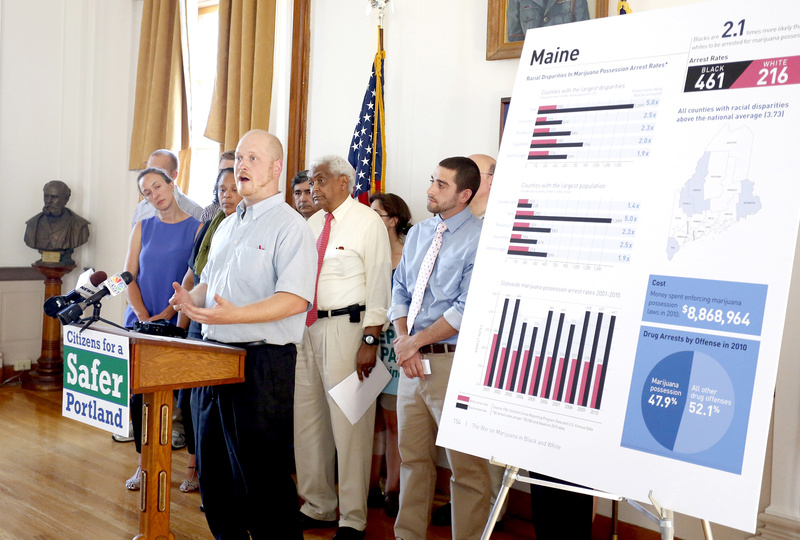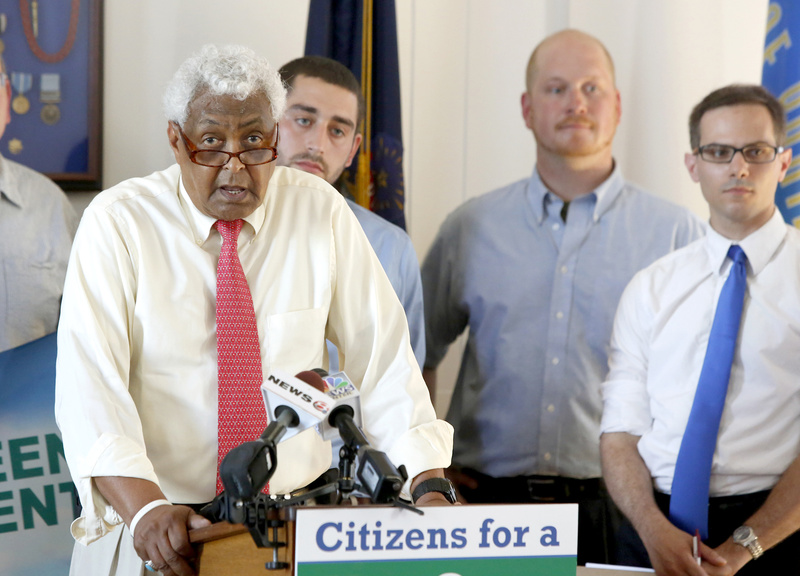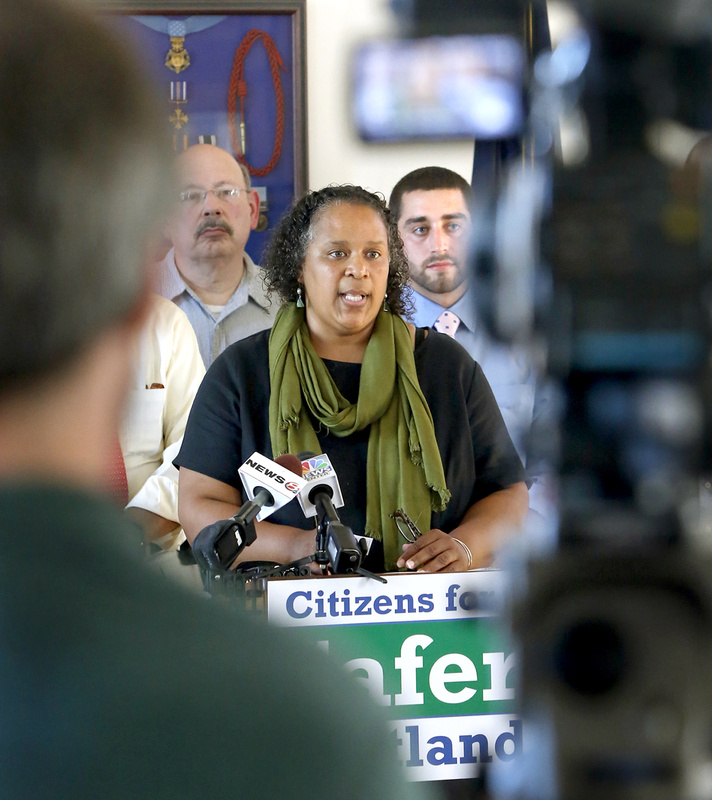PORTLAND – Politicians and civil rights leaders called Monday on the City Council to legalize marijuana during a press conference at City Hall, saying the state’s marijuana policy is costly and disproportionately affects black people.
Councilors are expected to vote Monday evening on an ordinance being put forward by the Citizens for a Safer Portland that would allow people age 21 or older to possess up to 2.5 ounces of marijuana, as well as paraphernalia.
Councilors are expected to either adopt the ordinance, or put the issue to voters in November.
Representatives from the NAACP of Maine, American Civil Liberties Union of Maine, the Portland Green Independent Committee and Maine Marijuana Policy Project called on councilors to adopt the ordinance.
Advocates on Monday repeated the argument that marijuana is safer and less addictive than alcohol. But they opened up a new front in the debate by citing statistics that show more black people than white people are arrested on marijuana charges.
Regina Phillips, an executive board member of the NAACP of Maine, said the state’s marijuana law is another example of an unfair justice system affects black people.
Phillips invoked the recent acquittal of George Zimmerman, who shot and killed Trayvon Martin, a young black man. Zimmerman was found not guilty of murder based on Florida’s “Stand Your Ground” law.
“I strongly believe the outcome would not have been the same if the roles were reversed – the young man was white and the shooter was black,” she said.
Marijuana arrests disproportionately affect black people, Phillips said. IN 2010, she said, blacks were arrested for marijuana offenses at twice the rate of whites.
Citing 2010 statistics from the Federal Bureau of Investigation, she said blacks in Maine are twice as likely as whites to be arrested on a marijuana possession. In Cumberland County, blacks are 1.4 times more likely to be arrested, but in York County, blacks are five times to be arrested.
“It has begun to feel like locking up young black men has become a national pastime,” Phillips said.
Bob Talbot, a board member of the ACLU of Maine, said the state spends $9 million a year on “aggressive enforcement” of marijuana laws that “ensnares thousands in the criminal justice system” and takes people away from their families. That money could be better spent, said Talbot.
“Those are taxpayer dollars that could be spent on hospitals, schools or better solutions,” Talbot said. “The truth is the war on marijuana is a failure.”
City Councilor David Marshall said that, although Maine has decriminalized marijuana and made possession of small amounts a civil violation, being caught with the substance is still a federal drug crime that can affect a person’s ability to get a job, a place to live, a student loan or business loan.
“There’s a whole host of federal programs you can be denied simply by having a possession of marijuana charge on your record,” he said.
Marshall said he expects the council will forward the issue to voters. Marijuana laws were changed in Colorado and Washington through citizen-led initiatives, he said.
Marshall said the issue of race and marijuana arrests will be a key component of the this fall’s campaign. He said he was confident Portland voters would approve the measure “by a large majority.”
Tonight’s council meeting, which includes a public hearing, starts at 7 p.m.
Send questions/comments to the editors.





